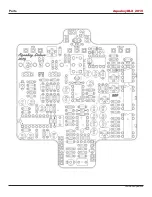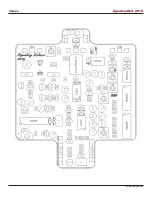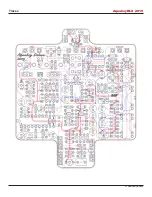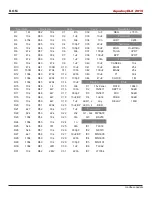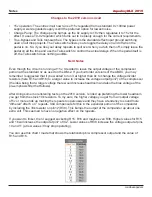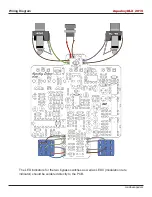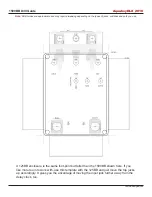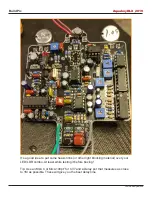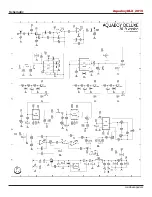
Analog Delay Basics
AquaboyDLX_2019
madbeanpedals
The BBD is made up of hundreds or thousands of tiny mosfet transistors (called steps) that delay the
input signal via capacitive charging (each step may also be referred to as a clock cycle). The more
steps in the device the longer the signal can be delayed. This delay is measured in milliseconds.
The clock outputs a continuous square wave at a specific frequency. This frequency instructs the BBD
as to the rate at which its steps “catch and release” the signal. The clock (which actually outputs two
frequencies 180° out of phase) can also be altered over a range to change the rate at which the BBD
processes the signal. It is this range that changes the delay signal from short to long.
This type of design has two major caveats: the clock generally operates on a frequency that is
within the human range of hearing and the signal processing of the delay degrades the input signal
continuously. The lower the clock frequency, the more delay you get, but the further it creeps into the
audio range.
Analog delays attempt to optimize the balance between signal degradation and clock bleed by a
series of additional signal processing chains. These are compression, filtering and expansion. The
compressor portion “beefs up” the incoming signal to minimize its degradation while traversing the
BBD. The filtering removes some of the high end content so that the clock does not bleed into it
(which would create a high pitch whine). Finally the expandor portion “de-compresses” the processed
signal and gets it ready for the output mixer.
This entire process is also responsible for creating the “magic” and “mojo” of the analog delay. That
magic is warmth. The continuous filtering of the guitar signal removes more and more high end
frequencies with each repeat which the ear perceives as warmth in the resulting guitar signal. This
is why people like analog delays so much---they create a very pleasing “bed of sound” that is neither
too piercing nor distracting. Each analog repeat fits neatly under the preceding one to create a very
natural and musical sound.


